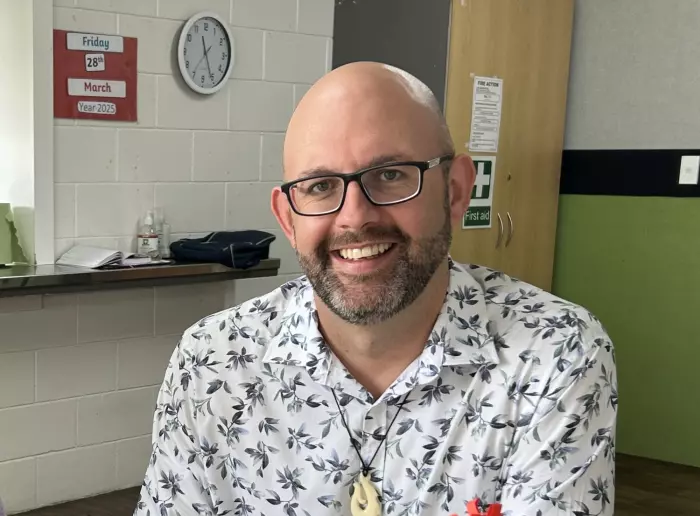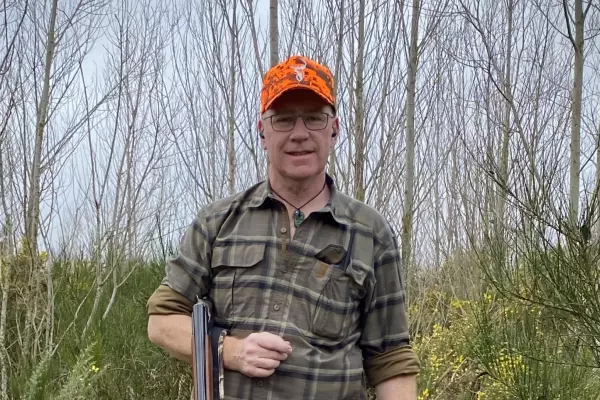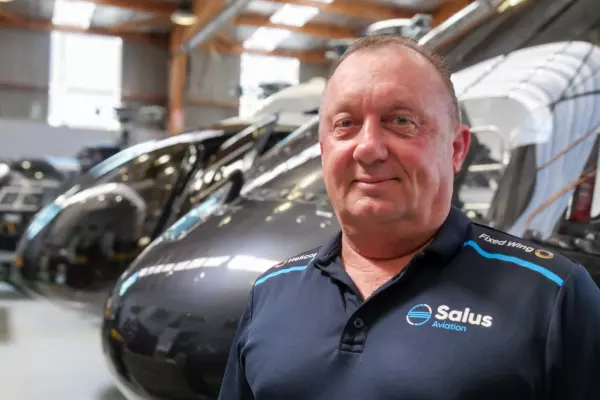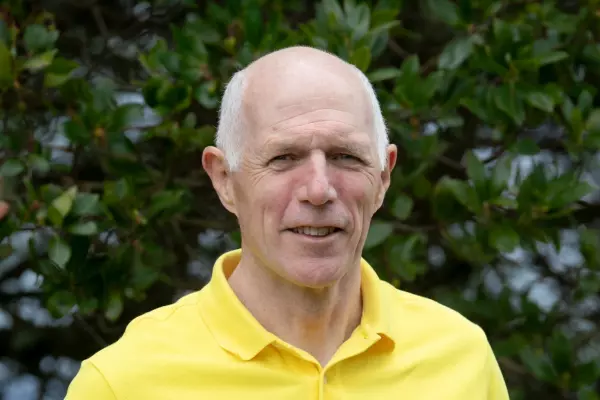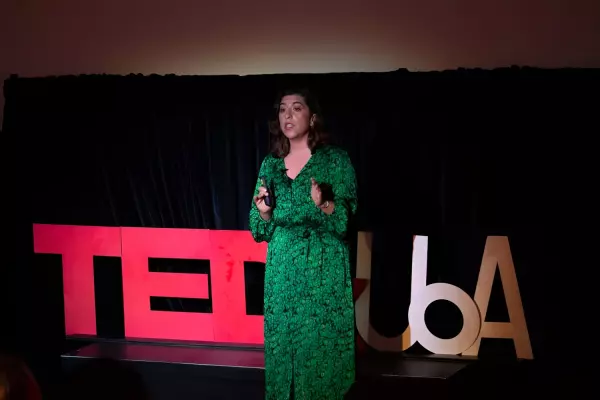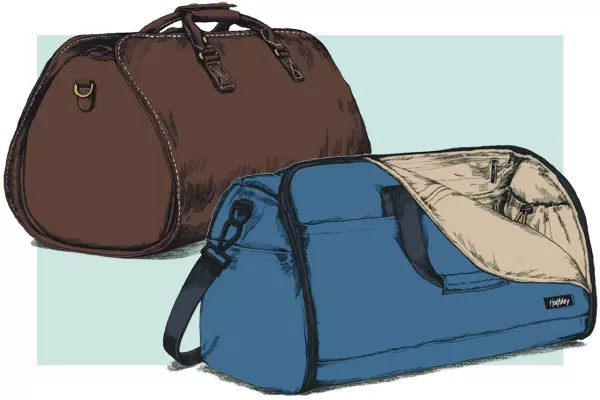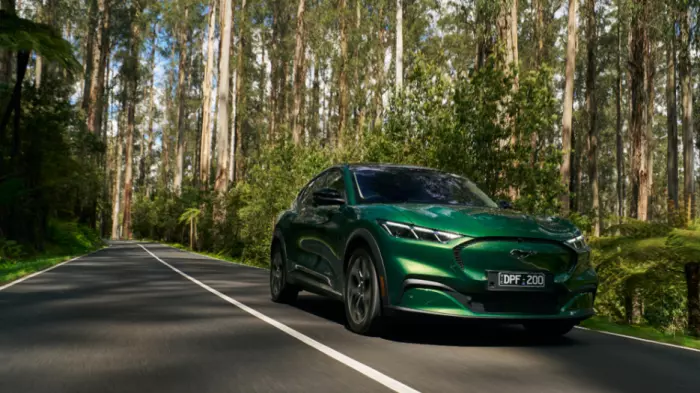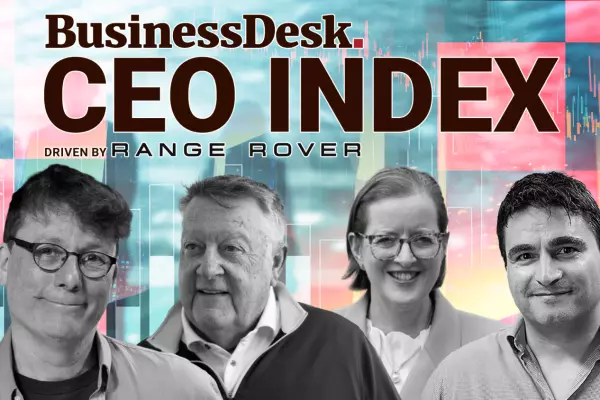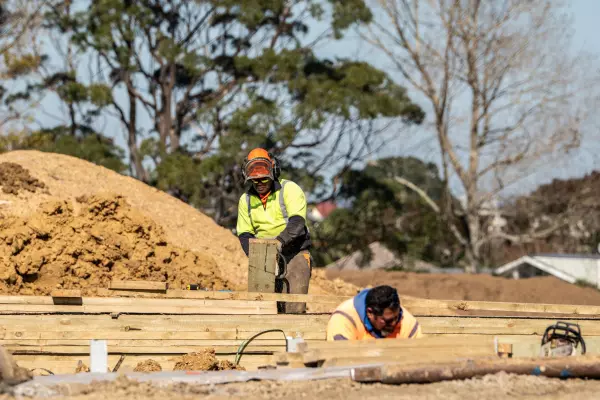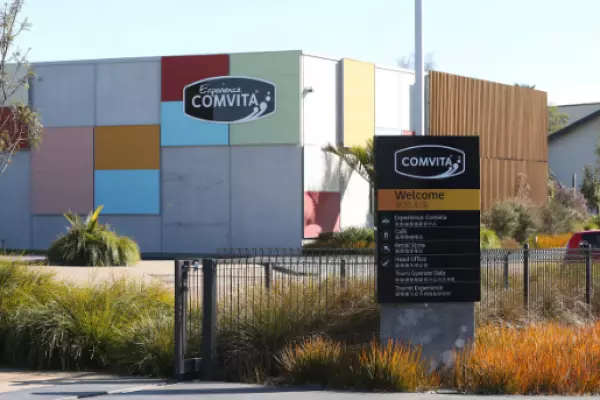Shaun Greaves has been the chief executive of Presbyterian Support Northern, an organisation that has been around for 140 years, employs approximately 900 staff, and is one of the largest charities in New Zealand, for the past six months. He is unmarried and lives in Auckland.
I was born in Middlemore Hospital in South Auckland. I grew up in Manurewa, where I spent most of my young life. I’m a South Auckland boy, through and through. I’m proud of my upbringing. It’s very diverse, and that’ probably my way of putting it. The community I lived in was very diverse.
My parents, Graeme and Carol-lyne, didn’t have a lot of money. We were pretty close to the breadline, and Mum talked about having to get food parcels. It was just my sister, Rosa-leigh, and me. They did their best to provide the best upbringing possible, which is partly why I’m so passionate about the work I do at PSN [Presbyterian Support Northern].
Dad’s work has been consistent throughout my life. He’s worked in warehouse distribution. He spent approximately 20 years at Nestlé and then 20 years at Repco, where he was responsible for distributing products. And then Mum has worked between being a cleaner in motels, then in retail, and later in more administrative and reception roles.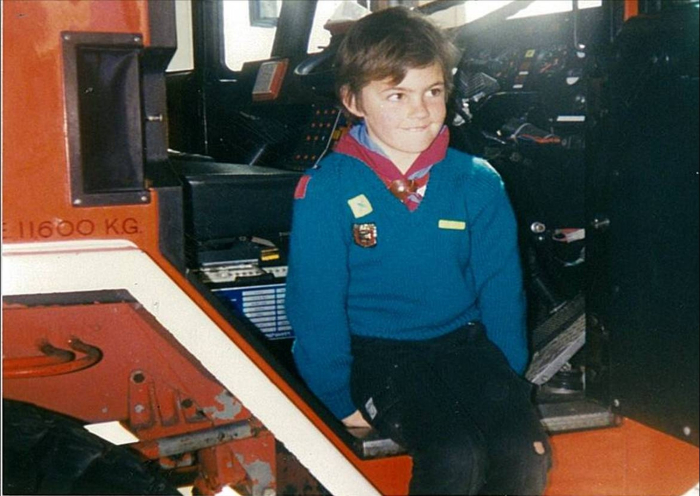
They did what many Kiwis do, and went to Australia. They’ve just come back in the last couple of years after spending 15 years living there. And so, it’s nice to have them back, but they’re getting a bit older and want to be here for their retirement. They followed my sister to Australia, who moved there for better pay and to be closer to their grandkids.
I’m not married, but I have been in a relationship with my partner for the past 18 months. It’s all going very well. I recently told someone that it’s still new, even though 18 months isn’t that new. My previous relationship was very, very long-term, but it didn’t work out, and we separated over two years ago.
My dream growing up was to become a pilot, and I’m absolutely doing nothing like that today. I’ve always been fascinated by travel, and so I wanted to grow up to be a pilot. However, in my early teens, I discovered that my sight was not very good. And so I’ve been squinting ever since. Point being, for a pilot, you’ve got to have really good eyesight. And so my dreams were crushed.
I moved on to wanting to be a teacher. And so for the next 10 years, that was what I aimed towards. And I went to uni, did a degree, thinking I’d be a social studies and history teacher, but then I got offered a job as someone’s executive assistant for an NGO, which paid more than a teacher, and then from there on, I just haven’t pursued that as a career. I believe that was the seed of the career I followed, as I’ve only ever worked at NGOs since then.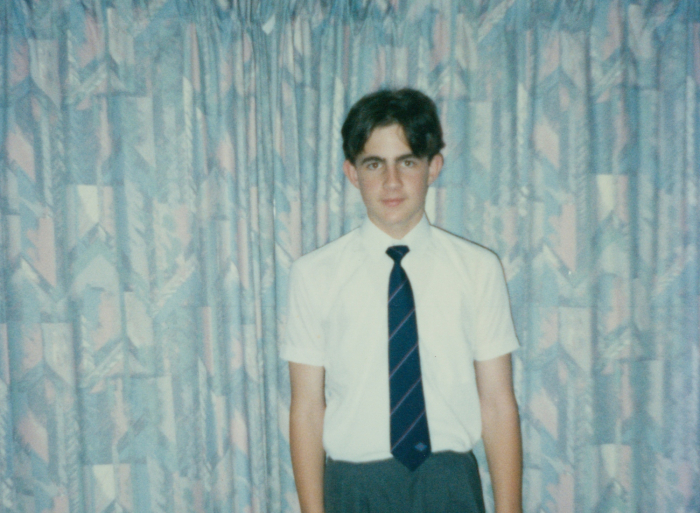
Shaun Greaves' first job at New World.
I earned a degree in history and film, TV, and media, which was a combination of my interests in teaching social studies and English. To become a high school teacher, you must have a bachelor’s degree and then complete a one-year teaching diploma. I didn’t complete the fourth-year teaching diploma, but I did take the relevant subjects. Mum periodically asks me every few years, 'Do you actually use your degree?' I was the first in my family to get a degree (I have 50 cousins!), and not using it perplexed them.
I was a very quiet, shy kid. I was in Scouts and St John Youth as a child, which I continued until about 18 or so. However, my hobbies these days revolve around taking my fitness seriously, and I visit the gym most days. I love comedy and I attend a comedy show most weeks, usually on a Friday night with my partner and friends, if they can be bothered to come out. This is also really nerdy, but I love board games.
I wish I were funnier. I’d love to get up and do stand-up comedy, but I don’t think I’m particularly funny. I mean, I can get people to laugh, but it’s usually because I’m reasonably awkward and they’re laughing at me, not with me. I think comedy is really good. I think it’s underrated.
PSN does some pretty cool work. It ranges from Lifeline, one of our services helping people considering suicide or who are having serious mental distress, through to Shine, which is our family violence service through to Enliven, which is where we have day services to support people, often living with dementia, but also we have about 500 staff that go and do home-based support care as well.
Our team is pretty special. I’ve spent some time with them around the region. Lifeline has a dedicated call centre, as they need to ensure that when they’re speaking with people, it’s in a confidential environment. Some of the issues they work through with people are tough and highlight the importance of their work.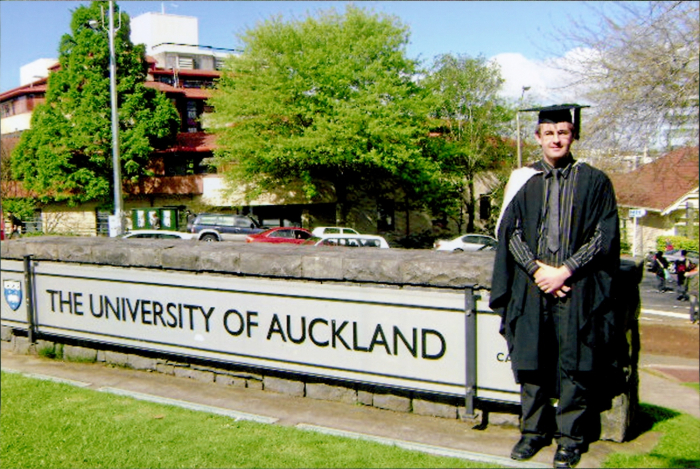
Graduation day.
My six-month anniversary as CE(O) of PSN has just come up. I had worked here previously, about three years ago, and then I got the opportunity to run Amnesty International as its New Zealand CEO. I went to do that, and loved working there. Working in human rights is a special environment to work in. However, I got the call from a recruiter to say would I consider coming back to PSN? Long story short, I’m now back here, this time as CEO, but I previously held the position of general manager. I was stoked. It’s been a pretty cool six months.
I’m always gonna say PSN is important. We are one of the largest charities in New Zealand, and that means there’s a lot of weight on my shoulders and my team’s shoulders, as well. I feel that there are a lot of people relying on us. We generate approximately $63 million in revenue annually, most of which comes from Government contracts, and, as a result, they have high expectations for us. There are many ways we deliver our services, and we also receive a significant amount of donations, which means the public has a vested interest in us doing a good job as well.
Our integrity is really important. If we commit to doing something, we will do it. However, last year, we lost approximately $1.5 million in revenue due to government budget cuts. We understand they’ve got to make cuts, but it is hard to understand some of the decisions. Cutting $1.5 million means that 800 kids and families will not receive support from social workers, counsellors, and others. That’s when I think you truly see the impact, when you’re in front of kids who need our services.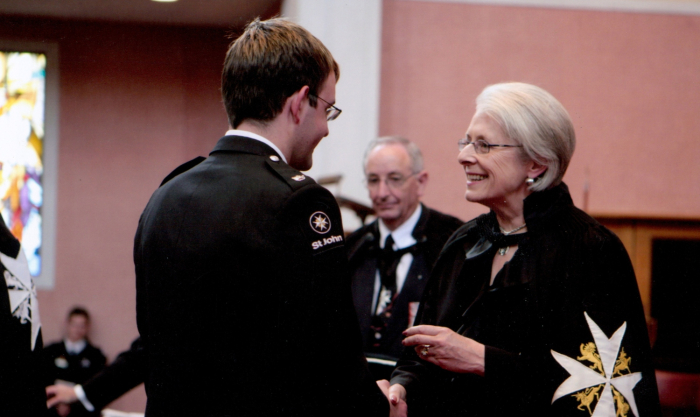
Shaun Greaves gets an award from Dame Silvia Cartwright, the Governor-General.
I think that if people truly understood that a service as critical as Lifeline receives no Government funding, despite their efforts, they would be quite shocked. When we talk to our donors, they’re quite shocked that we don’t receive any government funding. That is frustrating, and it does annoy me, particularly because other helplines do receive funding.
I’ve probably spent more time than I thought I would need to on advocacy, partly due to funding concerns, but also to innovate Lifeline so that we can do more top-of-the-cliff work. However, unfortunately, for any government – and we’re a neutral organisation – it’s not as sexy or attractive to fund top-of-the-cliff stuff. They’re always going to fund the bottom-of-the-cliff stuff, because that’s what gets the headlines. The preventative stuff is seen as a bit too fluffy, which is not accurate – it’s how we will actually change things ...
How would people describe my leadership style? I’d say it’s a very personal way to talk about yourself, like this. But I try really hard to get to know people, so it’s not just the surface level and handing out tasks. I try to understand who they are, what makes them tick. Have they got a family? I put people’s birthdays in my diary and wish them a happy birthday. I can’t do that for 900 staff members, but where I can, I like to do so. For me, it’s about being really present, visible, and doing my best to get to know people as well as possible.
One of my skills is that I’m good at remembering names. That does help me, because being able to remember someone’s name is really important to them. A word that’s been used to describe me before, and I just think it’s weird to talk about yourself, so I feel awkward saying this, but one word people have used to describe me is authentic. If I see you on the street, I remember your name. I remember what we talked about, and I’ll ask you about how you’re doing.
When you’re a CEO, boards generally really want you to get stuff done. Generally speaking, people assume that a CEO needs to be a tough person who gets things done. I like to try get things done, but I also want to strike a balance with people who are just as important. It’s a bit about balance. I’m not perfect at it, but I try.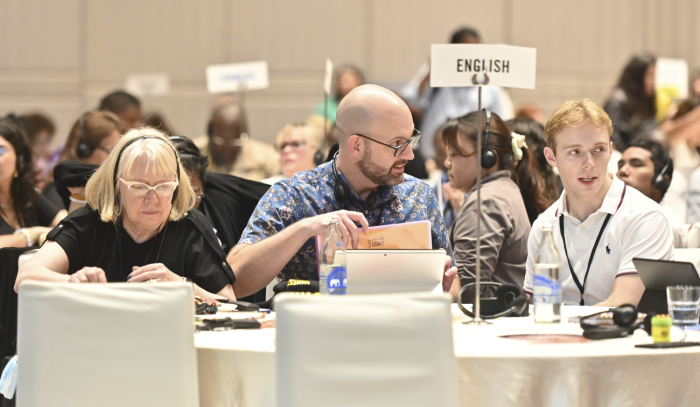
Amnesty International Global Assembly in Bangkok in August 2024.
I never saw myself as a CEO type. I used to be more of that support-you kind of person. I acted as a substitute for a previous boss for nine weeks while she was in Ireland, and I was quite astounded that she asked me to do that. But she came back, and I must have done a good enough job, where she said, “Actually, Shaun, I want to support you to get on the CEO development track.” This was about eight years ago. I set a goal to be a CEO by the age of 40. I just made it when I went to Amnesty. I never saw myself as a CEO, but once I set a goal, I achieved it. In terms of my best career achievement, it’s achieving the goal of being a CEO by the age of 40.
A couple of times, when I have failed, it’s been in recruitment. One of the key things you need to do as a leader is to get the right people on your team. And you’ll know this as well. If you have someone on your team who just isn’t the right fit, it can make things harder. I have made a couple of poor hiring decisions in my career, and I reflect on them now. There’s nothing more important than getting the right people on your team. 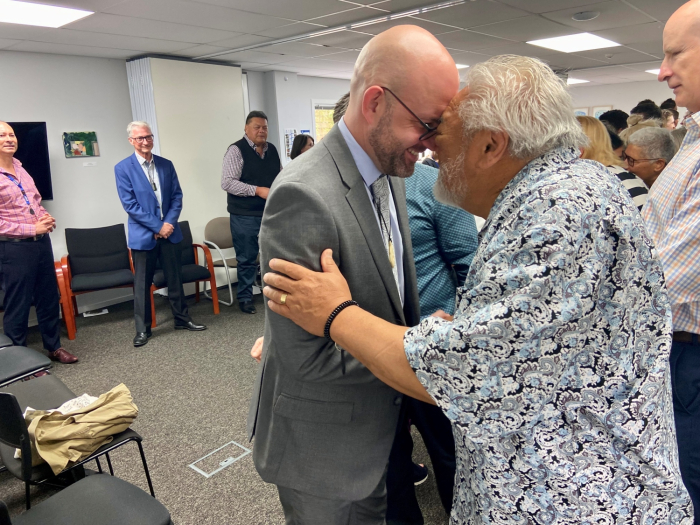
Mihi Whakatau on Shaun Greaves' first day at PSN.
It’s very rare for someone to stay in a job for 10 years. I know I want to keep doing what I'm doing now, trying to help change the world, which sounds a bit idealistic. But I am an idealist, I suppose. Ultimately, I have a goal to make a positive impact on the world, to improve New Zealand for the next generation. So for me, it’ll be working in a job like this a decade from now. It could still be this job, but a job like this, where I feel I’m making a difference for kids so that they can grow up in a better world than the one they arrived in.
My motto is always to do the right thing, even if it’s the hardest thing. I’m not saying I’m perfect at it, but it’s something I always try to do. It can be frustrating for others when you’re the boss and people are trying to take shortcuts. It might upset people, or it might be a bit more expensive, or it might be whatever, but always do the right thing, even if it’s the hardest thing. Ultimately, you’ll get better outcomes. I always think long term with everything.
The charity NGO sector is underrated in New Zealand; in terms of its impact, it’s equivalent to around 2.5 per cent of GDP, which is huge. We have charities across New Zealand that have $86 billion in assets. We’re not small, and, as a result, we can have a significant impact. Don’t underestimate the importance of the work that charities do. People can sometimes say, “But there are 29,000 of them?” I would tell people, don’t underestimate or undervalue us.
As told to Jacques Steenkamp.
My Net Worth profiles may be edited for brevity and clarity.
All images supplied.


